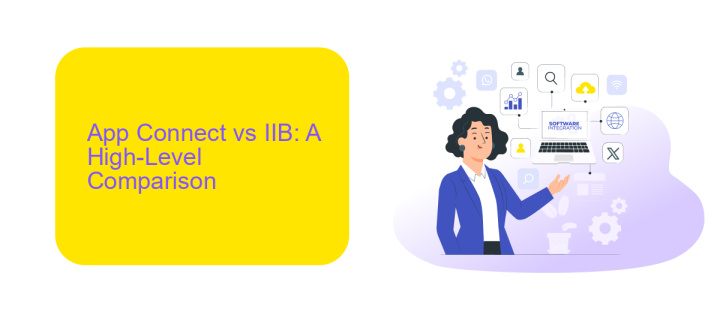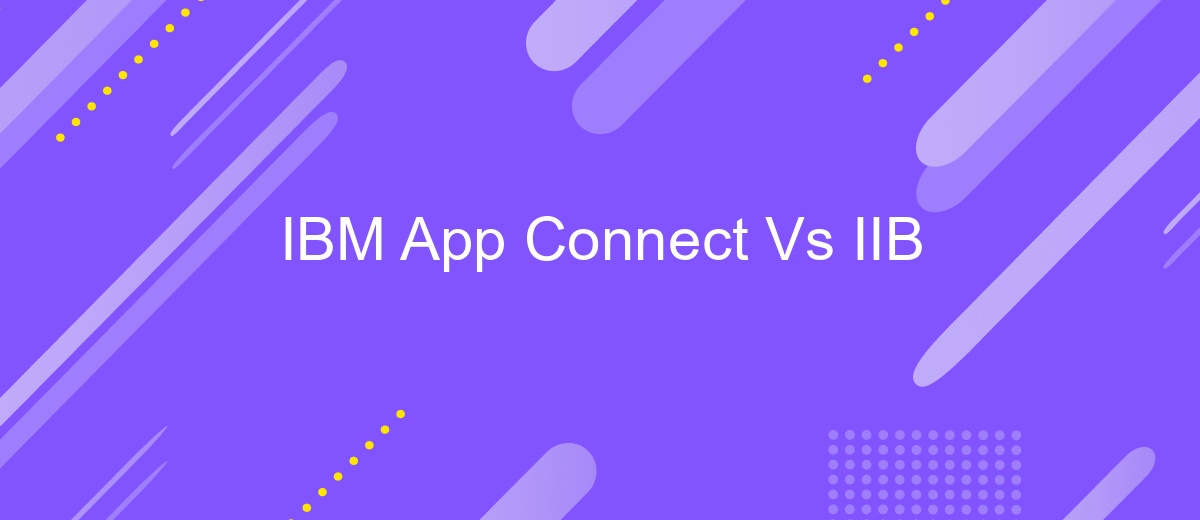IBM App Connect Vs IIB
When it comes to integrating various applications and data across enterprise environments, IBM offers robust solutions tailored to different needs. This article delves into a comparative analysis of IBM App Connect and IBM Integration Bus (IIB), highlighting their features, use cases, and key differences to help organizations make informed decisions for their integration strategies.
Introduction
In today's digital age, seamless integration between various applications and services is crucial for businesses to maintain efficiency and competitiveness. IBM App Connect and IBM Integration Bus (IIB) are two powerful tools that facilitate this integration, each with its unique features and capabilities.
- IBM App Connect: Known for its user-friendly interface and quick deployment, it enables businesses to connect applications and automate workflows with ease.
- IBM Integration Bus (IIB): Renowned for its robustness and comprehensive integration capabilities, it supports complex enterprise-level integrations.
Both IBM App Connect and IIB offer distinct advantages depending on the specific needs of the organization. While App Connect is ideal for rapid integrations and simpler workflows, IIB excels in handling more complex and large-scale integration scenarios. Additionally, tools like ApiX-Drive can further streamline the integration process by offering pre-built connectors and automation features, making it easier for businesses to manage their integrations efficiently.
App Connect vs IIB: A High-Level Comparison

IBM App Connect and IBM Integration Bus (IIB) are both robust tools designed to streamline and manage integrations, but they cater to different needs and use cases. IBM App Connect is a cloud-based integration platform that simplifies the process of connecting various applications and data sources. It is particularly well-suited for businesses looking to quickly set up integrations with minimal coding, making it accessible for non-developers. On the other hand, IIB, also known as IBM App Connect Enterprise, is a more comprehensive solution that provides advanced integration capabilities, including support for complex enterprise-level integrations and legacy systems.
While both platforms offer powerful integration features, the choice between them often comes down to the complexity of the integration requirements and the technical expertise available. IBM App Connect is ideal for straightforward integrations and rapid deployment, whereas IIB excels in handling more intricate scenarios requiring extensive customization and control. For businesses seeking an alternative or complementary solution, ApiX-Drive offers an easy-to-use interface for setting up integrations across various services and applications, providing a versatile option for managing integrations without extensive technical knowledge.
Detailed Comparison of Key Features

IBM App Connect and IBM Integration Bus (IIB) are both robust integration tools, but they have distinct features that cater to different integration needs. IBM App Connect is designed for ease of use and rapid integration, making it suitable for business users and developers alike. On the other hand, IIB offers more advanced capabilities for complex integration scenarios, targeting enterprise-level requirements.
- User Interface: IBM App Connect features a user-friendly, graphical interface that simplifies the process of creating integration flows. IIB, however, provides a more intricate development environment tailored for experienced developers.
- Integration Capabilities: Both tools support a wide range of integration patterns, but IIB excels in handling complex, high-volume transactions. IBM App Connect, while versatile, is optimized for straightforward, cloud-based integrations.
- Scalability: IIB is built to handle large-scale enterprise integrations with high reliability and performance. IBM App Connect offers scalability but is more focused on agility and quick deployment.
- API Management: IBM App Connect integrates seamlessly with services like ApiX-Drive, facilitating easy API management and connectivity. IIB also supports API integration but requires more configuration and setup.
In summary, IBM App Connect is ideal for fast, user-friendly integrations, while IIB is suited for complex, enterprise-level integration tasks. Depending on your specific requirements, one may be more appropriate than the other.
Use Cases and Suitability

IBM App Connect is ideal for organizations that require a versatile integration solution to connect various applications, data, and systems seamlessly. It is particularly suitable for businesses looking to automate workflows and enhance productivity by integrating cloud-based services with on-premises applications.
On the other hand, IBM Integration Bus (IIB) is better suited for enterprises that need a robust and scalable middleware solution to handle complex integration scenarios. IIB excels in environments where high-volume message processing and enterprise-level integration are critical.
- IBM App Connect: Best for small to medium-sized businesses needing quick and easy integrations.
- IBM Integration Bus: Ideal for large enterprises with complex integration needs and high transaction volumes.
- ApiX-Drive: Useful for businesses seeking a user-friendly platform to set up and manage integrations without extensive technical expertise.
Choosing between IBM App Connect and IIB depends on your specific business requirements. For simpler, more straightforward integrations, IBM App Connect is a perfect fit. However, for more intricate and high-demand integration tasks, IBM Integration Bus is the preferable choice. Additionally, tools like ApiX-Drive can complement these solutions by providing an intuitive interface for managing integrations.
Conclusion
In conclusion, both IBM App Connect and IBM Integration Bus (IIB) offer robust solutions for enterprise integration. IBM App Connect is ideal for businesses looking for a cloud-based, user-friendly interface that simplifies the creation and management of integrations. Its modern approach to integration, including support for APIs and event-driven architectures, makes it a strong choice for agile environments.
On the other hand, IBM Integration Bus remains a powerful tool for organizations with complex, on-premise integration needs. Its extensive capabilities in message transformation and routing are unparalleled. For businesses seeking an additional layer of flexibility, services like ApiX-Drive can further streamline the integration process by automating workflows and connecting various applications seamlessly. Ultimately, the choice between IBM App Connect and IIB depends on the specific needs and infrastructure of the organization.


FAQ
What is the primary difference between IBM App Connect and IBM Integration Bus (IIB)?
Can IBM App Connect and IIB work together?
Which tool is more suitable for a small business with limited IT resources?
Can I migrate my existing IIB integrations to IBM App Connect?
Are there third-party services that can help with integration automation and configuration?
Do you want to achieve your goals in business, career and life faster and better? Do it with ApiX-Drive – a tool that will remove a significant part of the routine from workflows and free up additional time to achieve your goals. Test the capabilities of Apix-Drive for free – see for yourself the effectiveness of the tool.

